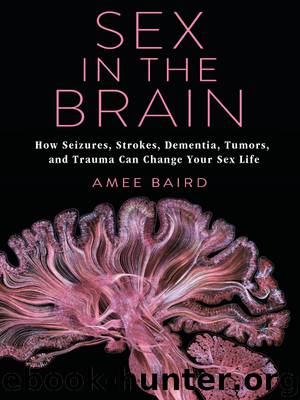Sex in the Brain by Amee Baird

Author:Amee Baird
Language: eng
Format: epub
Tags: MED057000, Medical/Neuroscience, PSY016000, Psychology/Human Sexuality
Publisher: Columbia University Press
Published: 2020-02-04T00:00:00+00:00
DR TILL AMELUNG IS A GERMAN PSYCHIATRIST WHO HAS spent nearly a decade researching paedophilia. He became involved in a treatment program for people with paedophilia after he saw an interview with a man who described an intense feeling of ‘falling in love’ with a child. Ever since then, in Till’s words, ‘the topic has not let me off the hook’.
Germany is the only place in the world where there is a treatment program for paedophilia outside of the forensic system, Till tells me – in other words, it is a program for ‘non-offending’ people who have a sexual interest in children but have not committed any sexual offence. But is it actually possible to ‘treat’ paedophilia? Experts in the field disagree on exactly what should be treated. Some argue that the aim of treatment, which involves both psychotherapy and drug treatments, should be to alter and indeed eliminate the sexual interest in children. Others argue that this is actually not possible, as it is a sexual orientation that cannot be changed; rather, they say, the aim of treatment should be controlling the sexual impulses to prevent offending. It is a debate of ‘elimination’ versus ‘control’.
Till is in the ‘control’ camp. After his treatment program, he says, those who have a sexual interest in children but have not offended report that, as a result of the treatment, their sexual interest and impulses have decreased. However there has not yet been a long-term follow-up study, so it is unclear how long the positive effects of treatment may last, and whether any of these non-offenders have ended up committing a child sexual offence. Till made a comment that I found both confronting and fascinating, and I have thought about it repeatedly since we spoke: ‘There is a struggle of people with paedophilia to have a sex life without doing harm,’ he said.
Most people with right temporal and/or frontal injuries do not develop hypersexuality or paedophilia. Those who do develop paedophilia in the context of a neurological condition typically show general behavioural ‘disinhibition’. But why do only some people with brain disorders express this in a sexual way? What is it about Gary that is different from other people who have right frontal tumours and do not develop such dramatic sexual changes? Till suggested that people like Gary may have had a sexual interest in children before their injury or the onset of their neurological disorder. They may have a predisposition of some sort, which there is still very little understanding of, and this makes them more vulnerable to develop it after an injury or the onset of disease. It might be that the disinhibition that can occur after a brain injury, disease or tumour, as in the case of Gary, means that this level of response shifts. The latent response that only existed very subtly before the tumour grew may then suddenly turn into a full-blown sexual reaction.
There are multiple pathways to developing paedophilia. Prenatal and developmental predispositions have been identified, such
Download
This site does not store any files on its server. We only index and link to content provided by other sites. Please contact the content providers to delete copyright contents if any and email us, we'll remove relevant links or contents immediately.
Periodization Training for Sports by Tudor Bompa(8273)
Why We Sleep: Unlocking the Power of Sleep and Dreams by Matthew Walker(6725)
Paper Towns by Green John(5191)
The Immortal Life of Henrietta Lacks by Rebecca Skloot(4588)
The Sports Rules Book by Human Kinetics(4388)
Dynamic Alignment Through Imagery by Eric Franklin(4217)
ACSM's Complete Guide to Fitness & Health by ACSM(4060)
Kaplan MCAT Organic Chemistry Review: Created for MCAT 2015 (Kaplan Test Prep) by Kaplan(4012)
Livewired by David Eagleman(3775)
Introduction to Kinesiology by Shirl J. Hoffman(3772)
The Death of the Heart by Elizabeth Bowen(3622)
The River of Consciousness by Oliver Sacks(3604)
Alchemy and Alchemists by C. J. S. Thompson(3522)
Bad Pharma by Ben Goldacre(3428)
Descartes' Error by Antonio Damasio(3279)
The Emperor of All Maladies: A Biography of Cancer by Siddhartha Mukherjee(3163)
The Gene: An Intimate History by Siddhartha Mukherjee(3098)
The Fate of Rome: Climate, Disease, and the End of an Empire (The Princeton History of the Ancient World) by Kyle Harper(3067)
Kaplan MCAT Behavioral Sciences Review: Created for MCAT 2015 (Kaplan Test Prep) by Kaplan(2986)
